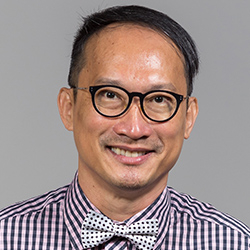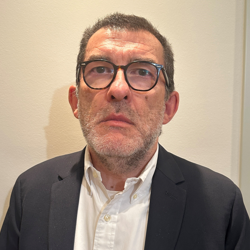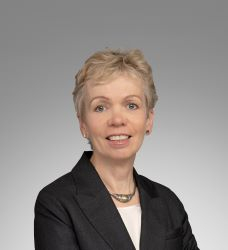
Under the patronage of Her Excellency Buthaina bint Ali Al Jabr Al Nuaimi, Minister of Education and Higher Education.

Prof. Jeffrey M. Bradshaw
Florida Institute for Human and Machine Cognition,
Pensacola, Florida,
USA
BIOGRAPHY
Jeffrey M. Bradshaw (PhD, Cognitive Science, University of Washington) is a Senior Research Scientist at the Florida Institute for Human and Machine Cognition (IHMC) in Pensacola, Florida (www.ihmc.us/groups/jbradshaw; Wikipedia). His professional writings have explored a wide range of topics in human and machine intelligence (www.jeffreymbradshaw.net). From 1985 to 2000, Bradshaw led research groups at The Boeing Company. Jeff is an Honorary Visiting Researcher at the University of Edinburgh, a former Visiting Professor at the Institut de Cognitique at the University of Bordeaux, and a member of the Graduate Faculty, Human-Centered Design Institute of the Florida Institute of Technology.
Day 1: A Brief History of Artificial Intelligence: Its Past and Its Future
Like many new disciplines, Artificial Intelligence (AI) has developed through a series of fits and starts—lurching and reeling from side to side like an awkward Frankensteinian robot through summers of unbridled optimism and winters of profound discontent as it blindly gropes its way ahead toward a still-nebulous future. Now, it seems, the field is once again making firm strides forward in applications that are both capturing the imagination of pundits and stoking the fears of the public. Over the past decades, Jeff has been lucky enough to follow some of these developments from a front-row seat. He will share selected perspectives on current and past research—including the various pendulum swings over the years between extremes, such as expertise-based knowledge engineering vs. data-centric machine learning, autonomous vs. mixed-initiative systems, publicly available chatbot capabilities vs. personalized, policy-governed multi-agent systems. In this talk, I will show what past research in AI has to teach us about the future.
Day 2: Safe and Helpful AI
In this workshop, we will discuss questions about what new developments will be necessary to make AI safe and helpful. We lead a group discussion of broad goals and principles that address questions like: What kind of AI do we want? What makes AI acceptable to people (or not)? What are the advantages and disadvantages of different approaches to AI to accomplish these goals? We will then give several examples of new computational mechanisms we have developed in our own research that support the design and development of safe and efficient AI systems.

Prof. Ng See Kiong,
Department of Computer Science
School of Computing,
National University of Singapore (NUS)
Singapore
BIOGRAPHY
See-Kiong Ng (Ph.D. Carnegie Mellon University) is Director of AI Technology at AI Singapore, Professor of Practice at the Department of Computer Science of the School of Computing at National University of Singapore, and Director of Translational Research of the university’s Institute of Data Science. See-Kiong started his research career as one of the early bioinformaticians. His lifelong mission is to leverage data science and AI for transdisciplinary and translational research into solving important real-life problems. He has published widely, with around 130 research papers in leading peer-reviewed journals and conferences across multiple disciplines to-date, and he is now overseeing multi-million dollar national research programmes for applied R&D in AI technologies. From using the science of data to better understand the biology of the human body, See-Kiong is now using machine learning and artificial intelligence to understand the “biology” of complex human cities and societies.
Day 1: (Is there) Life after ChatGPT?
AI has come a long way in understanding human languages, with spectacular breakthroughs in recent years (or rather, months), driven by the successes of big data and machine learning. The "ChatGPT moment" that had descended upon us at the end of last year is both exciting and scary for those of us working in the field of natural language processing (NLP). Will it continue to surprise us? Is there life for us NLP researchers after ChatGPT? In order to have a glimpse at the future, we will take a look at how we have come this far, hopefully to help us see where we may go from here.
Day 2: What can AI do for Finance?
With the many breakthroughs in AI, there is great scope for financial institutions to harness AI's potential to transform financial services. In this workshop, we will jointly brainstorm on how AI can transform financial services. We will discuss on the possible problem statements and potential AI solutions for the finance sector.

Prof. Luciano Baresi
Professor
Politecnico di Milano
Italy
BIOGRAPHY
Luciano Baresi is full professor at the Politecnico di Milano - Dipartimento di Elettronica, Informazione e Bioingegneria, where he earned both his laurea (master) degree and PhD in computer science. Luciano was visiting professor at University of Oregon (USA) and visiting researcher at University of Paderborn (Germany). Luciano was program chair for ICECCS, FASE, ICWE, ICSOC, SEAMS, ESEC/FSE, and SCC, and general chair for WICSA/CompArch. He is currently the steering committee chair of ESEC/FSE. Luciano has co-authored diverse papers and a book in Italian. His research interests are in the broad area of software engineering. At the beginning he was interested in formal approaches for modeling and specification languages, he then moved to UML and the design of Web applications. Currently, he is interested in distributed systems, service-based applications, and in the different aspects of mobile, self-adaptive, and pervasive software systems.
Day 1: Can Software Engineering Help Ameliorate AI-based Systems?
Many people tend to see AI and Software Engineering as two independent areas and they see no need for them to cooperate. In these days, someone may say that AI, and mainly Machine Learning (ML), can help Software Engineers produce better software, given ML can do everything, but still there is no perception that Software Engineering is needed if one wants to conceive, design, deploy, and operate robust, efficient, and reliable AI-based systems. These applications are different, existing techniques must be tailored properly, and maybe new methods and solutions are needed, but a sound software process is needed to conceive and develop complete systems (and not only their embedded AI-based components). The talk will start introducing the interplay between AI and Software Engineering, and it will then discuss how Software Engineering can help AI through some concrete cases and examples. The presentation will focus on some first experiences carried out in my research group: some first attempts at healing neural network models, at applying meta-morphic testing to neural networks for image recognition, at improving the deployment and operation of federated learning systems and at provisioning heterogeneous resources to ease and optimize the training and inference phases of machine learning-based systems. The final goal is to try to identify some recurring problems and some open issues for a plausible research agenda.
Day 2: Interplay between AI and Software Engineering
While the presentation Day 1 will mainly be based on the work we have being doing, the goal of the second day is to analyze both directions of the relationship, widen the scope, and provide a more organized taxonomy of the different options and alternative. The presentation will be organized in different sessions, in a workshop-like fashion, to let the audience focus on the different problems/aspects, allow them to ask for questions, and foster the discussion.

Dr. Leonie Lethbridge
EGM, Chief Operating Officer
Commercial Bank of Qatar
BIOGRAPHY
Dr Leonie Lethbridge is Chief Operating Officer and Executive General Manager at Commercial Bank, Qatar. Leonie brings deep transformation and innovation capability to the role and has oversight of Commercial Bank’s innovation entity – CB Innovation Services. Dr Lethbridge’s leadership experience also extends to Board roles including as a member of the Board of Directors both at Alternatif Bank and Alternatif Lease company, in Turkey.
Leonie joined Commercial Bank in July 2017 from ANZ Royal Bank, the leading international bank in Cambodia, where she served as Chief Executive Officer from 2016 to 2017. In her 15 years at ANZ, Dr Lethbridge served in senior roles across developed and emerging markets, including as a CEO, COO and CRO. Dr Lethbridge was previously a management consultant, advising clients in the financial services, manufacturing and telecommunication sectors. Her career also includes executive roles in the manufacturing industry in Australia and Asia in a range of organisations and she has also acted in numerous advisory positions for both government and private sector organisations.
She holds a PhD from Swinburne University of Technology and a Master’s Degree in Applied Science from RMIT University.

Dr. Ahmad Abdel-Hafez
Assistant Professor
Data Science & AI
College of Computing and Information Technology, UDST
BIOGRAPHY
Dr. Ahmad Abdel-Hafez is an accomplished data scientist in healthcare, specializing in applying machine learning (ML) algorithms to solve clinical problems using electronic health records (EHR). Before working as an assistant professor at the University of Doha for Science and Technology (UDST), Dr. Abdel-Hafez's spent several years collaborating with research teams, clinicians, and data experts to deliver impactful projects, within Queensland Health, Australia. He has played a pivotal role in leveraging data-driven insights to enhance clinical decision-making and optimize operational efficiency. He has fostered interdisciplinary connections with institutes, clinicians, and hospitals, leading successful grant applications and mentoring the next generation of researchers. His notable contributions include leading projects such as personalized dosing systems and automated triaging of outpatient referrals, showcasing his dedication to driving positive change in healthcare through data science.
Implementing AI in Healthcare: Prospects and Challenges
The integration of Artificial Intelligence (AI) in healthcare holds immense promise for transforming patient care, enhancing efficiency, and reducing costs. Despite the proven success of AI proof-of-concepts in various clinical domains, AI remains relatively non-existent in most healthcare organizations. This session focuses on identifying the existing obstacles to broader AI adoption in healthcare and defines the essential prerequisites for its successful development, evaluation, and implementation. We will delve into a comprehensive clinical AI implementation framework (SALIENT), offering insights into a step-by-step approach. Finally, we will shed the lights on our recent implementations and research projects in healthcare. Through this narrative, we aim to provide an understanding of what is needed to make AI a reality in our hospitals.

